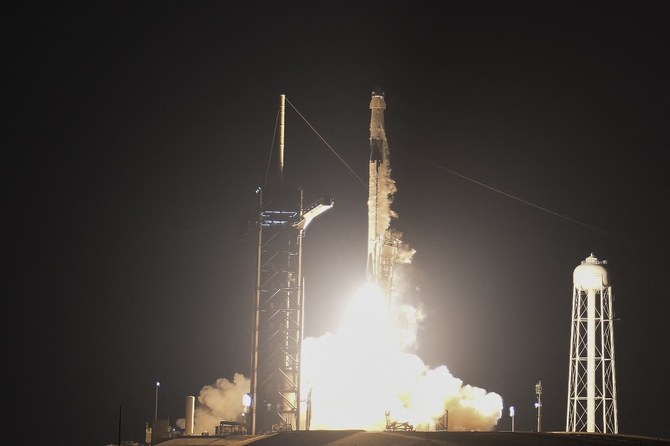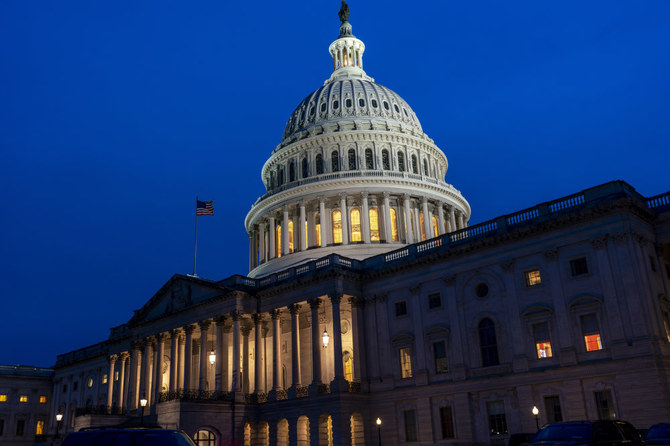
The past decade or so has seen American withdrawal from several conflict zones with little appetite seen for military engagement or involvement in global disputes.
The power of the US now rests almost solely on the status of the US dollar as a global reserve currency, allowing it to use sanctions and exert pressure on countries. In order to maintain this, it must also keep its allies invested in that system.
In fact, the US dollar is more than a currency. There is a whole system built around it. Sovereign financial instruments, be they currency or bonds, are also political documents that have behind them institutional arrangement, credible legal frameworks, international alliances as well as military, political and economic power. Any merchant who invested in Ottoman or Austrian bonds before the First World War learned that lesson the hard way.
But the dollar system is still solid, the only game in town, and there are no indications of its demise. On the contrary, during financial crises, people still rush to it for safety. Istanbul bazaar traders, in these times of inflation, convert their Turkish lira to dollars almost daily as a store of value. This is partly an intangible faith in its value and convertibility and mainly because there is no credible alternative.
This was tested in 1981 when the US dollar lost about two thirds of its purchasing power through stagflation and still maintained that status. I remember left-wing student organizations celebrating the end of American capitalism in conferences 42 years ago.
Debt ceilings can be raised multiple times and the country will be immune to financial crises as long as it can print its currency and there is global demand for it. No matter what its share of international trade is, other currencies traded have to pass through dollar-based convertibility to be credible; even gold is priced in dollars.
The world as we know it needs a currency of reference such as the dollar. There is no substitute. Furthermore, the dollar is not only a currency, it is also a platform for trade and payment and dispute resolution, mainly through American courts. To understand this, imagine having to resort to Russian or Chinese courts to resolve disputes.
It took two world wars to dislodge British sterling from that position, and the whole post-Second World War international institutional arrangements as well, as much of international trade is reliant on the dollar since it was adopted as the global reserve currency at the Bretton Woods conference. That established the current international order and its institutions — such as the World Bank, the International Monetary Fund and the International Trade Organization. It would take a huge upheaval in the international system to dislodge the dollar.
Having said that, the very fact that we are asking these questions means that the process has begun. We are seeing numerous alliances being formed to combat the dollar: Every time the US uses sanctions against a country or blocks it from using the SWIFT financial transfers network controlled by the US Treasury or other dollar-based instruments; every time it freezes dollar-based assets, it pushes more actors to start looking for alternatives. Who knows what will happen with central bank digital currency if it also moves to interbank operations. No state can defeat the dollar on its own but alliances are forming with that sole purpose.
A hostile collapse of the US dollar would have dire consequences on the interdependent global economy and, most of all, on the US itself.
Nadim Shehadi
When states have an incentive to move away from any instruments or bonds that the US can seize at leisure or displeasure, that system is no longer safe — even America’s allies are worried. A friend’s father once said that ideally banking should be boring, now it is becoming dangerous.
Russia and China are leading the charge and are gathering allies through several mechanisms. One of them is the expansion of the BRICS alliance already composed of Brazil, Russia, India, China and South Africa. The acronym was coined by Jim O"Neill, the former chief economist of the Goldman Sachs group who has recently called for its expansion — and there are already talks with several countries, including some major oil producers, to join it.
China leads the Shanghai Cooperation Organization, a Eurasian economic, political, security and defense bloc that is also seeking an expansion of its members. They are already discussing alternative arrangements that would hedge against US-dollar dominance. These efforts have increased with the Ukraine war and the stepping up of Russian-Chinese trade in yuan.
The global economy is also going through a period of instability. In the past 12 years, especially since 2011, we have witnessed increasing protest movements that represent cracks in the post-Second World War system. In the 1980s, when we spoke of a global debt crisis it was understood to mean the debt of developing countries. In 2023, we automatically also think of some of the leading economies such as Japan and the UK, as well as the PIIGS group in Europe composed of Portugal, Italy, Ireland, Greece and Spain, with Greece having the highest debt to GDP ratio of close to 178 percent. The US is again immune to this but the consequences of a large-scale global crisis remain unpredictable.
There is a new generation that is questioning that world order. A generation that still pays taxes but gets fewer services than the previous one and is expected to shoulder the debt burden their parents’ generation has created. The 20th-century welfare state has sold them short. They don’t have faith in official figures, they see that survival on current salary levels is impossible. Economists are the last people to offer solutions; Greece and Argentina have the world’s best economists and the worst economies. The next change in the global order could be the result of financial implosion rather than a world war.
The US has also been losing influence in regions it is withdrawing from, and many of its friends have doubts about its reliability as a guarantor of their security and protection. Within the US itself there are also growing voices that question its role as a superpower and its ability to lead a stable global order. Even the Europeans are not satisfied with the current security arrangements. America forgot how much it depends on its allies. The recent Chinese-brokered agreement between Saudi Arabia and Iran is but one indication of this phenomenon.
If the demise of the dollar is still difficult to imagine, it is also equally challenging to think of its power as eternal. The US should review its strategy and work with its friends and allies and maintain its soft power to ensure that when change happens, it will be managed. A hostile collapse of the US dollar would have dire consequences on the interdependent global economy and most of all, on the US itself.
• Nadim Shehadi is a Lebanese economist.
Twitter: @Confusezeus












